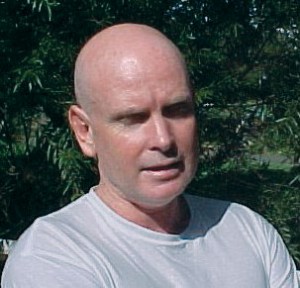This workshop will take place at the Buddhist Library. It is limited to 20 places. Registration is essential.
The Buddha taught that our suffering comes from within the Mind, as does our healing and peace. Others have said happiness is an inside job. Meditation and mindfulness are the practices we can use to work with our suffering and heal from within.
Many people have endured difficult experiences through their lives, psychologically and physically. For some it’s what occurred in their childhood, for others through the course of their work or livelihood and others seemingly random and unexplained events.
This workshop will incorporate meditation and mindfulness techniques from the beginning along with some information on the types of impact physical and psychological shock can have on the way the brain works and how meditation and the practice of mindfulness can be of benefit and help heal the mind. Participants will be guided through different meditation techniques incorporating Tibetan singing/healing bowls to hopefully identify a practice or pathway that will lead you to calming the mind and being at peace.
This workshop is by donation but please book ahead as it is limited to 20 people only [first come first serve] and please contact the library if you wish to discuss any aspects of this workshop and what will be involved. You will need to register before 4pm on Thursday 9th of March as the Library is not staffed from Friday to to Monday (inclusive).
This workshop is not a substitute for professional healthcare/medical services. You should speak to your healthcare provider for any concern you have about your mental health.
Teacher profile
 Giles Barton commenced his regular practice of meditation in 1992 and has taken part in many retreats with well known local and international monks including two three month silent retreats at Bodhinyana monastery with Ajahn Brahm in 2000 and 2003. He has been a regular teacher at the Buddhist Library for the last ten years and has also been active in supporting Buddhist communities in NSW. In addition to facilitating a number of retreats for young people and adults he has presented at the 2000 Australian Suicide prevention conference on a Buddhist approach to suicide prevention and contributed a chapter in 2007 to the book Spirited Practices, based on people’s use of their spirituality in the helping professions.
Giles Barton commenced his regular practice of meditation in 1992 and has taken part in many retreats with well known local and international monks including two three month silent retreats at Bodhinyana monastery with Ajahn Brahm in 2000 and 2003. He has been a regular teacher at the Buddhist Library for the last ten years and has also been active in supporting Buddhist communities in NSW. In addition to facilitating a number of retreats for young people and adults he has presented at the 2000 Australian Suicide prevention conference on a Buddhist approach to suicide prevention and contributed a chapter in 2007 to the book Spirited Practices, based on people’s use of their spirituality in the helping professions.
Giles commenced working with children and their families in the oncology unit at the old Royal Alexander Children’s Hospital in Camperdown in 1989, in which time he also commenced volunteer work with teenagers with Cancer (CanTeen) and served on both the state committee and was a member of the National Board from 1992-1995. After leaving the Children’s hospital he went on to specialise in Child & Adolescent psychiatry and continues to work in the field on Infant, Child and Adolescent Mental health as a Clinical coordinator for inpatient and community services for the local health district where there is an increasing emphasis on trauma informed interventions. He has a postgraduate diploma in child and adolescent development and Masters in Behavioural Science (Distinction) for research into adolescent spirituality.
All Sessions are by Donation (Dana) to the Buddhist Library. All donations to the Buddhist Library of $2 and over are tax deductible.
Dana is the traditional practice of generosity, the extending of one’s goodwill, which is fundamental to Buddhism and other spiritual traditions. The dana you give helps to maintain the Library and allows it to offer more teachings on the Dhamma so that others may benefit in the future. It is up to each person to determine the amount of dana they’d like to offer. We understand that this is a difficult time financially for many, and people will give what they can. An appropriate dana can’t be prescribed but requires sensitivity to its intent and to the individual’s own situation, as well as awareness of the cost of organising events and supporting teachers who spread the Dhamma.

